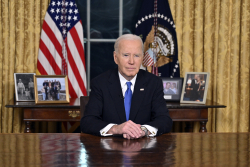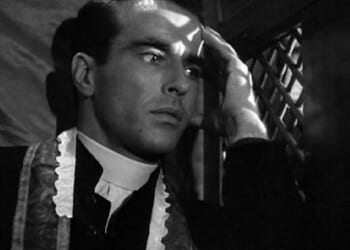When Churchill finally took up residence at 10 Downing Street in London, World War II had already been raging for eight months.
May 8, 2025, is eightieth anniversary of V-E Day, i.e., Victory in Europe, when the Allied powers attained the surrender of Nazi Germany, thus leaving Imperial Japan as the lone remaining Axis power to be defeated (which occurred three months later, thus finally ending World War II).
Two days later, May 10, 2025, will mark the eighty-fifth anniversary of another game-changing event that would end up playing a crucial role in making V-E Day possible in the first place: the day that Sir Winston Leonard Spencer Churchill assumed the reins of power as prime minister of the United Kingdom.
(If one wishes to nitpick, Churchill wasn’t knighted by Queen Elizabeth II—thus officially becoming “Sir Winston”—until April 24, 1953, i.e., nearly thirteen years after he became prime minister.)
Prelude to Winston Churchill’s Prime Ministerial Power
When Churchill finally took up residence at 10 Downing Street in London, World War II had already been raging for eight months. That’s correct, Neville Chamberlain, the same milquetoast British prime minister who preceded Churchill with his infamous “Peace in our time” coddling and appeasement of Adolf Hitler, was in fact the British head of state who ended up declaring war on Nazi Germany. But to say that Chamberlain’s wartime leadership was both a case of “too little, too late” and decidedly uninspiring would be an understatement.
Meanwhile, Churchill had been spending many years in the political wilderness as a backbencher member of parliament, which makes his May 1940 comeback just that much more remarkable. Throughout the 1930s, Churchill had been outspoken in his warnings about German rearmament, Britain’s lack of comparable military strength, and Hitler. However, much of Britain’s political leadership, including much of the membership of his own Conservative Party (aka the Tories), acted like the metaphorical ostrich hiding its head in the sand.
British mainstream media were initially complicit in trying to silence and suppress Churchill. Chief amongst these guilty parties were John Reith, first director-general of the BBC (1927-38), and Geoffrey Dawson, editor of The Times (1912-19, 1923-41).
Winston Churchill’s Rise to Power
However, by July 1939, a mere two months before the Nazi invasion of Poland, more and more British newspaper outlets were starting to see the light (or perhaps more accurately, the darkness that Churchill had forecast) and started clamoring for Churchill to be made a member of the British cabinet, including: the Daily Telegraph, Observer, Yorkshire Post, Manchester Guardian, News Chronicle, Daily Mirror, Evening News, Star, and the Daily Worker (yes, that’s right, a communist newspaper actually advocated on behalf of a Conservative politician).
On September 3, 1939, the same day that Britain officially declared war on Germany, the newspapers got their wish, as Chamberlain reappointed Churchill as First Lord of the Admiralty—a position he had already previously held early in World War I before the Gallipoli disaster compelled his demotion and resignation—and indeed added Churchill to the Cabinet.
The final straw was the Allies’ failed naval campaign to liberate northern Norway in April 1940. That led to the so-called “Norway debate” in the British government from May 7 to May 9, 1940. As Battlefield News describes it:
“[Chamberlain] with Clement Attlee, leader of the Labour Party, on 9 May. Chamberlain wanted Labour to join his government and attempted to persuade Attlee to do so …Attlee, however, was unwilling. But he did agree that the Labour Party would form a coalition government with the Conservatives under a different Prime Minister … Chamberlain decided to resign from office the following day. Chamberlain went to Buckingham Palace to resign and advised the King to send for the new Prime Minister, Winston Churchill.”
As Churchill himself later wrote about this sea change in British leadership, “I felt … that all my past life had been but a preparation for this hour and for this trial.” The rest was history. As stated by James Taylor of the Imperial War Museum in a piece titled “How Churchill Led Britain To Victory In The Second World War“:
“Crucially, he rallied the nation in defiance of Hitler. In the words of Labour politician Hugh Dalton, Churchill was ‘the only man we have for this hour’. This view was shared by the overwhelming majority of the British people.”
That defiance of Hitler was visually manifested and immortalized in Sir Winston’s iconic “V” for “Victory” sign.
Winston Churchill’s Iconic Speech
Three days after his triumphant resurgence, Churchill made his legendary first speech as prime minister to the House of Commons. Courtesy of the International Churchill Society’s Instagram page:
“I have nothing to offer but blood, toil, tears, and sweat. We have before us an ordeal of the most grievous kind. We have before us an ordeal of the most grievous kind. We have before us many, many long months of struggle and of suffering. You ask, what is our policy? I can say: It is to wage war, by sea, land and air, with all our might and with all the strength that God can give us; to wage war against a monstrous tyranny, never surpassed in the dark, lamentable catalogue of human crime. That is our policy. You ask, what is our aim? I can answer in one word: It is victory, victory at all costs, victory in spite of all terror, victory, however long and hard the road may be; for without victory, there is no survival.”
About the Author: Christian D. Orr
Christian D. Orr was previously a Senior Defense Editor for National Security Journal (NSJ) and 19FortyFive. He is a former Air Force Security Forces officer, Federal law enforcement officer, and private military contractor (with assignments worked in Iraq, the United Arab Emirates, Kosovo, Japan, Germany, and the Pentagon). Chris holds a B.A. in International Relations from the University of Southern California (USC) and an M.A. in Intelligence Studies (concentration in Terrorism Studies) from American Military University (AMU). He has also been published in The Daily Torch, The Journal of Intelligence and Cyber Security, and Simple Flying. Last but not least, he is a Companion of the Order of the Naval Order of the United States (NOUS). If you’d like to pick his brain further, you can ofttimes find him at the Old Virginia Tobacco Company (OVTC) lounge in Manassas, Virginia, partaking of fine stogies and good quality human camaraderie.
Image: PhotoFires / Shutterstock.com
















